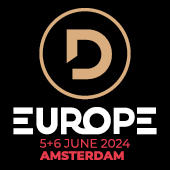German CEP market heads for recovery after shrinking in “turbulent” 2022
.png)
The German courier, express and parcels (CEP) market declined last year as consumers hit by rising prices and higher costs reduced their spending – but is expected to stabilise this year and should return to growth in 2024, according to the latest annual study by the German Parcels & Express Logistics Association (BIEK).
Despite the market's first downturn since the global financial crisis of 2008/09, however, both volumes and revenues remained well above pre-pandemic levels in 2022, indicating underling growth after three years of ups and downs.
Lower volumes in all segments
The German CEP industry delivered about 4.15 billion shipments in total last year, which was 360 million pieces (-7.9%) fewer than in 2021 – but 14% more than in the pre-Covid year of 2019, according to the “CEP Study 2023” (which covers all players in the market).
Overall B2C shipments of online orders and other goods to private consumers dropped by as much as 10.6% last year while B2B shipments weakened by 4% on the previous year.
The domestic parcel market saw an 8.8% drop in volumes, with B2C down by 10.7% and B2B by 3.8%. International and domestic express and courier shipments were 5.7% lower last year than in 2021.
Revenues decline
In financial terms, the industry generated total revenues of about €26 billion in 2022, which was a 3.5% drop on the previous year’s record figure of €26.9 billion. The average revenue per shipment increased slightly as companies introduced price increases to try to cover rising costs.
Although the study does not cover profitability, observers noted that given the overall increases in labour, energy and other costs, CEP firms in Germany are likely to have ended 2022 with lower profits.
Mastering challenges
BIEK pointed out that the volume and revenue figures show that the dramatic growth rates generated by the Covid-19 pandemic in 2020 and 2021 are clearly over but stressed that the long-term upward path remains for the coming years.
BIEK chairman Marten Bosselmann commented: "Despite the declines in the past year, it is clear that the long-term growth trend of the CEP market is continuing. At the same time, the industry is adapting to the continuing turbulent environment and is mastering the challenges facing the economy and society as a whole.”
Study author Klaus Esser told a press conference that the CEP industry had experienced “extreme fluctuations” over the last three years, making it very difficult for companies to plan capacity, staffing, and other operational activities.
2023 recovery?
This year, Esser predicted cautiously, the German CEP market could start to recover in the second half-year after the current weak consumption trends, enabling it to finish 2023 with flat or low growth.
However, he stressed this forecast was “extremely uncertain”, and depended on factors such as the Ukraine war, inflation, incomes and consumption, as well as international supply chain problems and changes in trade flows.
More positively, Esser said that from 2024 onwards, the German CEP market could then grow moderately by 3.3% on average per year, reaching 4.9 billion shipments by 2027. This prediction is based on lower inflation, low GDP growth, higher export volumes and long-term growth in e-commerce.


